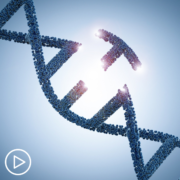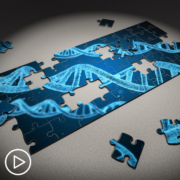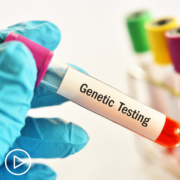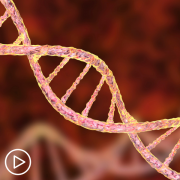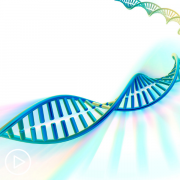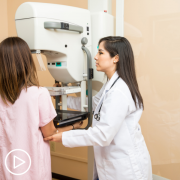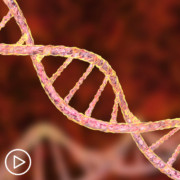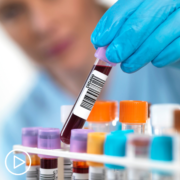Demystifying Breast Cancer:
Separating Fact from Fiction During Breast Cancer Awareness Month
Breast Cancer Awareness Month, which takes place each October, is a global campaign that aims to raise awareness about breast cancer, encourage early detection through regular screenings, and provide support to those affected by the disease. During this month, various organizations, foundations, and individuals come together to educate and inform the public about breast cancer prevention, treatment, and survivorship.
One of the significant challenges in combating breast cancer is the prevalence of myths and misconceptions surrounding the disease. These myths can contribute to fear, anxiety, and even misinformation, leading to delays in seeking medical help or pursuing necessary preventive measures.
In this article, we will focus on debunking some of the most common breast cancer myths.
Myth 1: Only Older Women Get Breast Cancer
Fact: While breast cancer is more prevalent among older women, it is a disease that knows no age limits. Breast cancer can strike at any stage of a woman’s life, including young adulthood. The diagnosis of breast cancer in young women can be particularly devastating, as they are often at the peak of their careers, building families, or pursuing their dreams.
Myth 2: You Can’t Get Breast Cancer if It Doesn’t Run in Your Family
Fact: Breast cancer is usually not directly inherited through genes. Having a family history of breast cancer can increase the risk, but most cases occur in women without any family history. Many factors, both genetic and environmental, can influence the development of breast cancer. Some genetic mutations like BRCA1 and BRCA2 are associated with higher risk, but these mutations are relatively rare and account for only a small percentage of all breast cancer cases. Therefore, even if breast cancer does not run in your family, it doesn’t mean you are immune to the disease.
Myth 3: Breast Cancer is Always Painful
Fact: Many women mistakenly believe that if they are not experiencing pain or discomfort in their breasts, they are free from the risk of breast cancer. However, this is far from the truth. One of the most deceptive traits of breast cancer is its ability to develop silently, often without causing pain or discomfort. By the time it becomes painful or symptomatic, it may have reached an advanced stage, making it more challenging to treat.
The presence of the following signs should raise concern:
- Lumps or Masses: One of the most recognizable signs of breast cancer is the discovery of a lump or mass in the breast or underarm area.
- Skin Changes: Changes in the skin over the breast, such as redness, dimpling, puckering, or an orange-peel-like texture, can be indicative of breast cancer. These changes may not be painful but should prompt immediate medical evaluation.
- Nipple Changes: Unexplained changes in the nipples, such as inversion, scaling, crusting, or discharge (other than breast milk in nursing mothers), should be examined by a healthcare professional.
- Breast Pain: While breast pain is not a reliable indicator of breast cancer, persistent, unexplained breast pain or discomfort should not be ignored. It is essential to seek medical advice to rule out any underlying issues.
Myth 4: If You Have a Lump in Your Breast, It’s Always Cancer
Fact: It’s important to understand that not all breast lumps indicate cancer. In fact, the majority of breast lumps are benign, meaning they are non-cancerous. While it’s always prudent to take any changes in your breasts seriously and consult a healthcare professional, it’s helpful to know that there are many other potential causes of breast lumps.
One common cause of benign breast lumps is cysts. Cysts are fluid-filled sacs that can develop in the breast tissue. They are typically round or oval in shape and can feel smooth or rubbery to the touch. Cysts may appear and disappear on their own or fluctuate in size with hormonal changes throughout the menstrual cycle. While cysts are usually harmless, they can sometimes be painful or uncomfortable.
Another benign condition that can cause breast lumps is a fibroadenoma. Fibroadenomas are solid, non-cancerous tumors that often occur in younger women. They are typically smooth, firm, and movable. Fibroadenomas are influenced by hormonal changes and can grow in size or become more tender during pregnancy or certain hormonal therapies. Although fibroadenomas are not cancerous, it is essential to have any new or changing breast lumps evaluated by a healthcare professional to confirm the diagnosis.
Other potential causes of benign breast lumps include breast infections (mastitis), lipomas (soft fatty tumors), and traumatic injuries to the breast tissue. In some cases, hormonal imbalances, such as those associated with certain medications or conditions like polycystic ovary syndrome (PCOS), can also contribute to the development of breast lumps.
Myth 5: Only Women Get Breast Cancer
Fact: Although rare, men can develop breast cancer. Men have breast tissue too, although it is typically less developed than women’s breast tissue. Any changes in the breast area should be monitored. These changes may include a lump or thickening in the breast or under the nipple, changes in the size or shape of the breast, nipple discharge (often bloody), or changes in the skin over the breast area.
When it comes to breast cancer in men, many of the risk factors are similar to those for women. Age is a significant factor, with the risk increasing as men get older. Family history of breast cancer, genetic mutations such as BRCA2, exposure to estrogen, and certain medical conditions such as Klinefelter syndrome or liver disease are also known to increase the risk for male breast cancer.
Although breast cancer in men is relatively uncommon, it is still important to raise awareness and provide education about this topic. Men should be encouraged to understand their breast health, know the potential risk factors, and be proactive in seeking medical attention if any concerns arise. Early detection and intervention can greatly improve the prognosis and outcome for men diagnosed with breast cancer.
Myth 6: Bras with Underwire Cause Breast Cancer
Fact: Numerous scientific studies have been conducted to investigate the potential link between underwire bras and breast cancer. The results consistently show that there is no credible evidence supporting the notion that wearing underwire bras increases the risk of developing breast cancer.
Myth 7: Deodorants Can Cause Breast Cancer
Fact: Similarly there is no scientific evidence to support the claims that deodorants and antiperspirants cause breast cancer. These products are used by millions of people worldwide, and rigorous scientific research has not established any direct link between their use and the development of breast cancer. Rather than worrying about everyday products, we should focus on known breast cancer risk factors, such as genetics, family history, lifestyle choices, and regular breast health checks. These factors have a more significant impact on breast cancer risk, and understanding and addressing them can contribute to overall breast health and well-being.
Myth 8: Breast Cancer Is A Single Disease
Fact: Breast cancer is not a singular disease but rather a diverse and complex group of different types of tumors. These tumors can vary in their biological characteristics, behaviors, and responses to treatment.
The classification of breast cancer takes into account various factors, including:
- Receptor Status: Breast cancer tumors can be classified based on the presence or absence of hormone receptors, such as estrogen receptors (ER) and progesterone receptors (PR), as well as human epidermal growth factor receptor 2 (HER2). These classifications guide treatment decisions and are crucial in determining the most effective therapies.
- Histology: Breast cancer tumors can have different histological characteristics, which means they can look different under a microscope. For example, some breast cancers are invasive ductal carcinomas, while others are invasive lobular carcinomas, each with its distinct features.
- Genetic Subtypes: Advances in genetic research have led to the identification of specific genetic subtypes of breast cancer, such as triple-negative breast cancer (negative for ER, PR, and HER2) and HER2-positive breast cancer. These subtypes may respond differently to targeted treatments.
- Stage and Grade: Breast cancer is staged based on the size of the tumor, lymph node involvement, and whether it has spread to other parts of the body. The grade of the tumor also reflects its aggressiveness.
Recognizing the diversity within breast cancer is important because different types of breast cancer may require different treatment approaches. Treatment plans are tailored to the specific characteristics of the tumor and the individual patient, taking into account factors like age, overall health, and personal preferences.
Additionally, ongoing research into the molecular and genetic aspects of breast cancer continues to reveal more about the complexity of the disease, leading to more precise treatments and improved outcomes. By dispelling the myth that breast cancer is a single disease, we highlight the importance of accurate diagnosis and individualized treatment plans, ultimately contributing to better care and outcomes for those affected by breast cancer.
Myth 9: Mammograms Cause Breast Cancer
Fact: Mammograms, a type of X-ray imaging, are a tool in the early detection of breast cancer, identifying abnormalities that may not be noticeable during a physical examination. However, concerns about the potential risks associated with radiation exposure have been raised.
Radiation can be harmful, particularly at high doses, but the dose used in mammography is extremely low. The level of radiation involved in a mammogram is carefully regulated and tailored to minimize any potential risks. Modern mammography machines are designed to deliver the lowest radiation dose possible while producing clear and detailed images.
It is understandable to have concerns about radiation exposure, but it’s essential to consider the bigger picture. The benefits of regular mammograms far outweigh the minimal radiation exposure involved. Early detection of breast cancer through mammography can significantly increase the chances of successful treatment and improve long-term outcomes.
Myth 10: Stress Causes Cancer
Fact: While it is well-established that chronic stress can have a negative impact on overall health and well-being, including weakening the immune system, there is no conclusive scientific evidence to support the claim that stress directly causes cancer.
While stress may contribute to an individual’s overall health, it is only one piece of the puzzle when it comes to cancer development. That being said, managing stress and adopting healthy coping mechanisms are still important for overall well-being. Engaging in activities such as exercise, meditation, or pursuing hobbies can help reduce stress levels and improve mental health.
Rather than living our lives in fear that stress alone will lead to cancer, it is more helpful to prioritize overall health through a balanced diet, regular physical activity, and appropriate cancer screenings. These proactive measures have been shown to have a more direct impact on reducing cancer risk.
Breast Cancer Awareness Month serves as a reminder that knowledge is power. By dispelling these myths and promoting accurate information, we can empower women to make informed decisions about their breast health. Breast cancer is a complex and multifaceted disease, and understanding the facts is essential in the journey toward prevention, early detection, and improved outcomes.

A Stanford Medicine X e-Patient scholar, Marie Ennis O’Connor is an internationally recognized keynote speaker, writer, and consultant on global trends in patient engagement, digital health and participatory medicine. Marie’s work is informed by her passion for embedding the patient voice at the heart of healthcare values. She writes about the experience of transitioning from breast cancer patient to advocate on her award-winning blog Journeying Beyond Breast Cancer.


